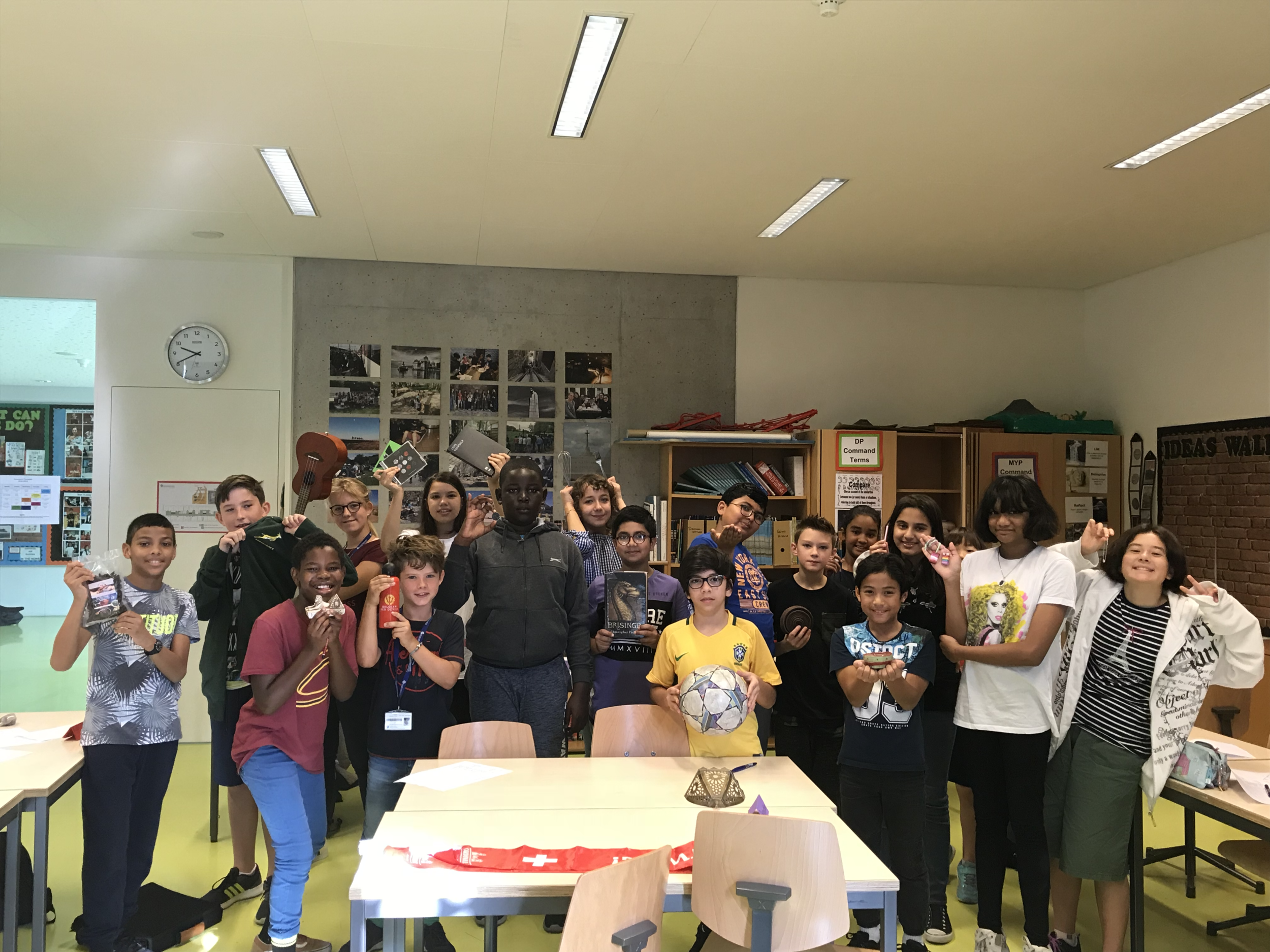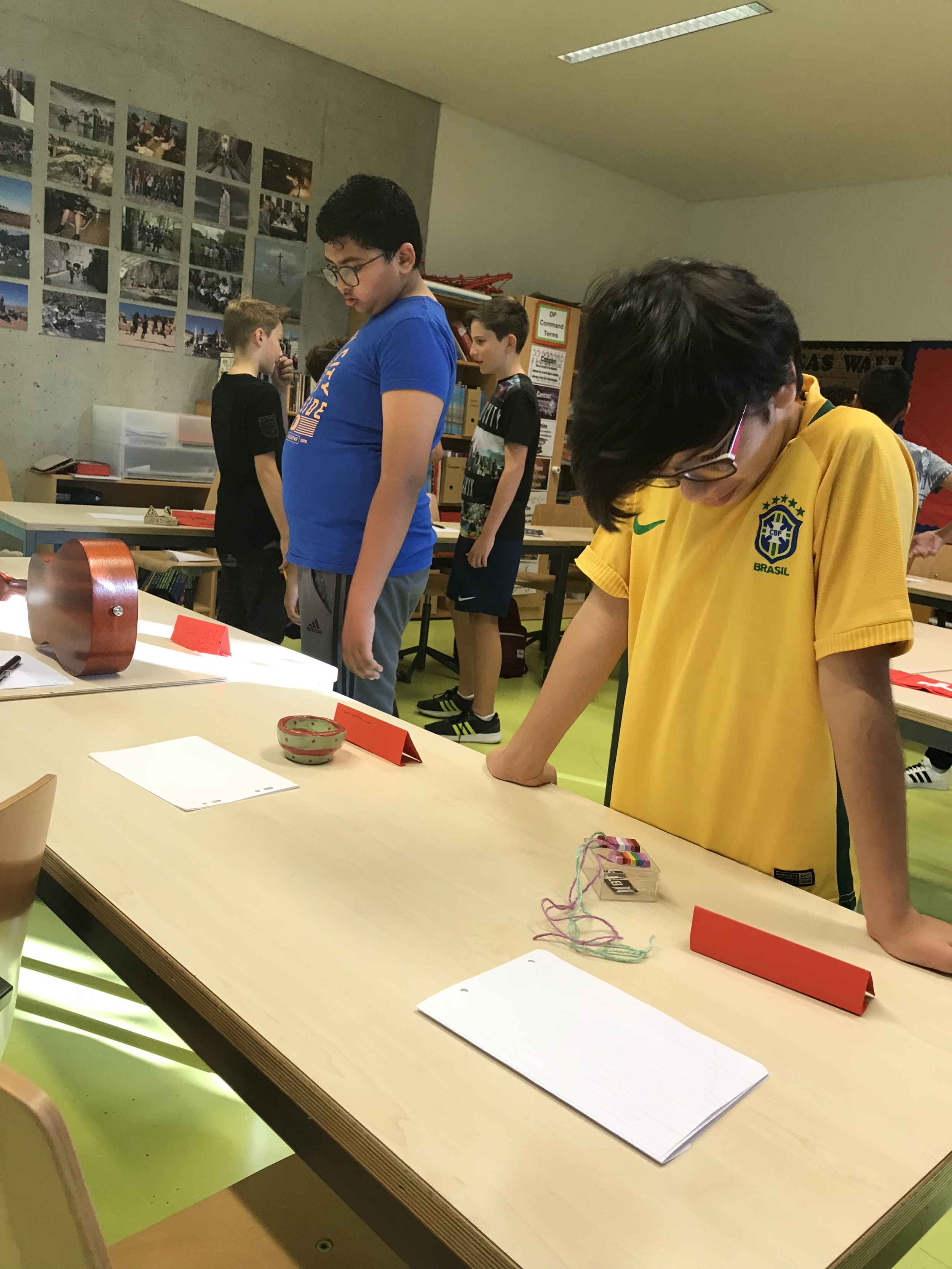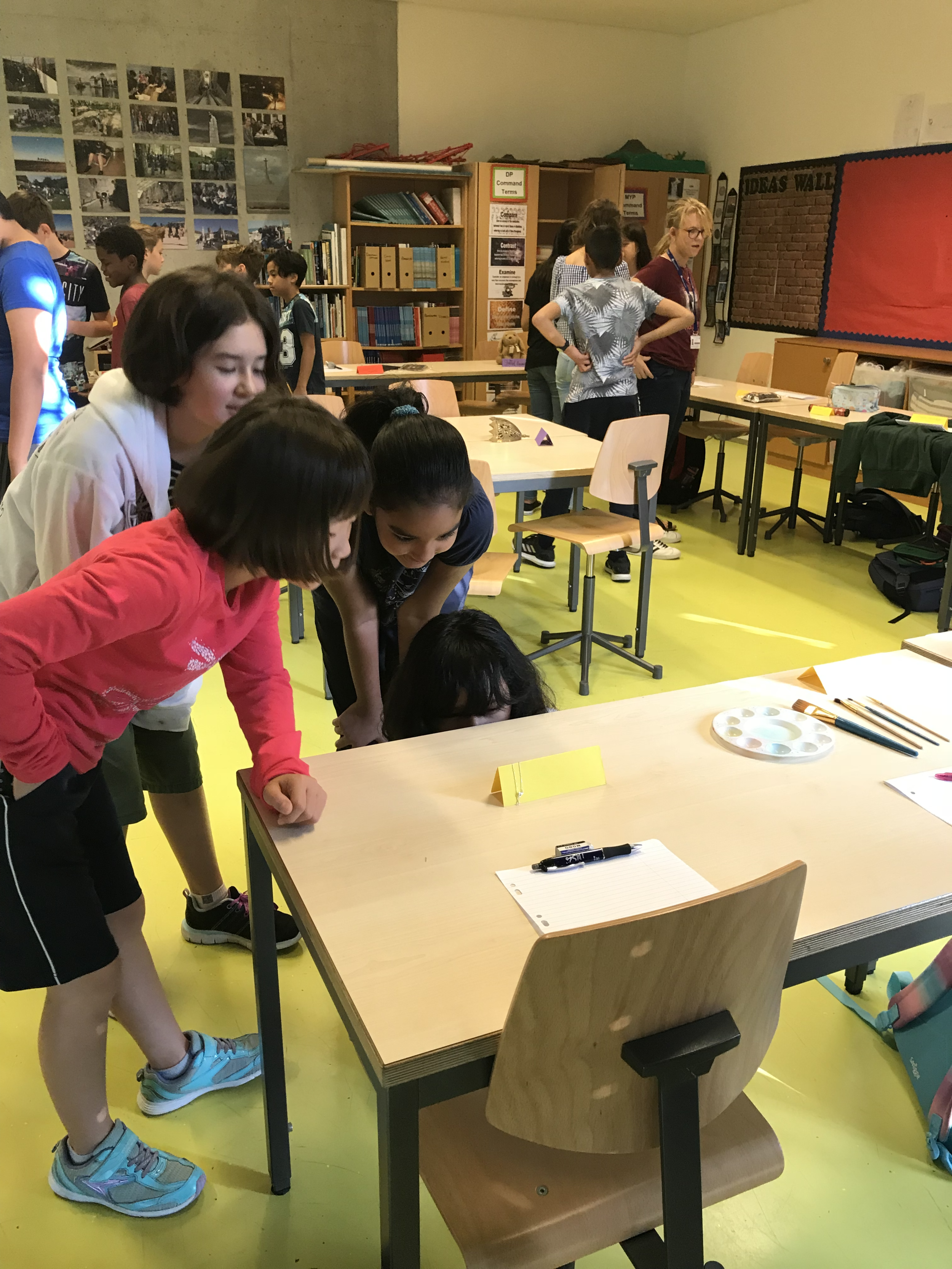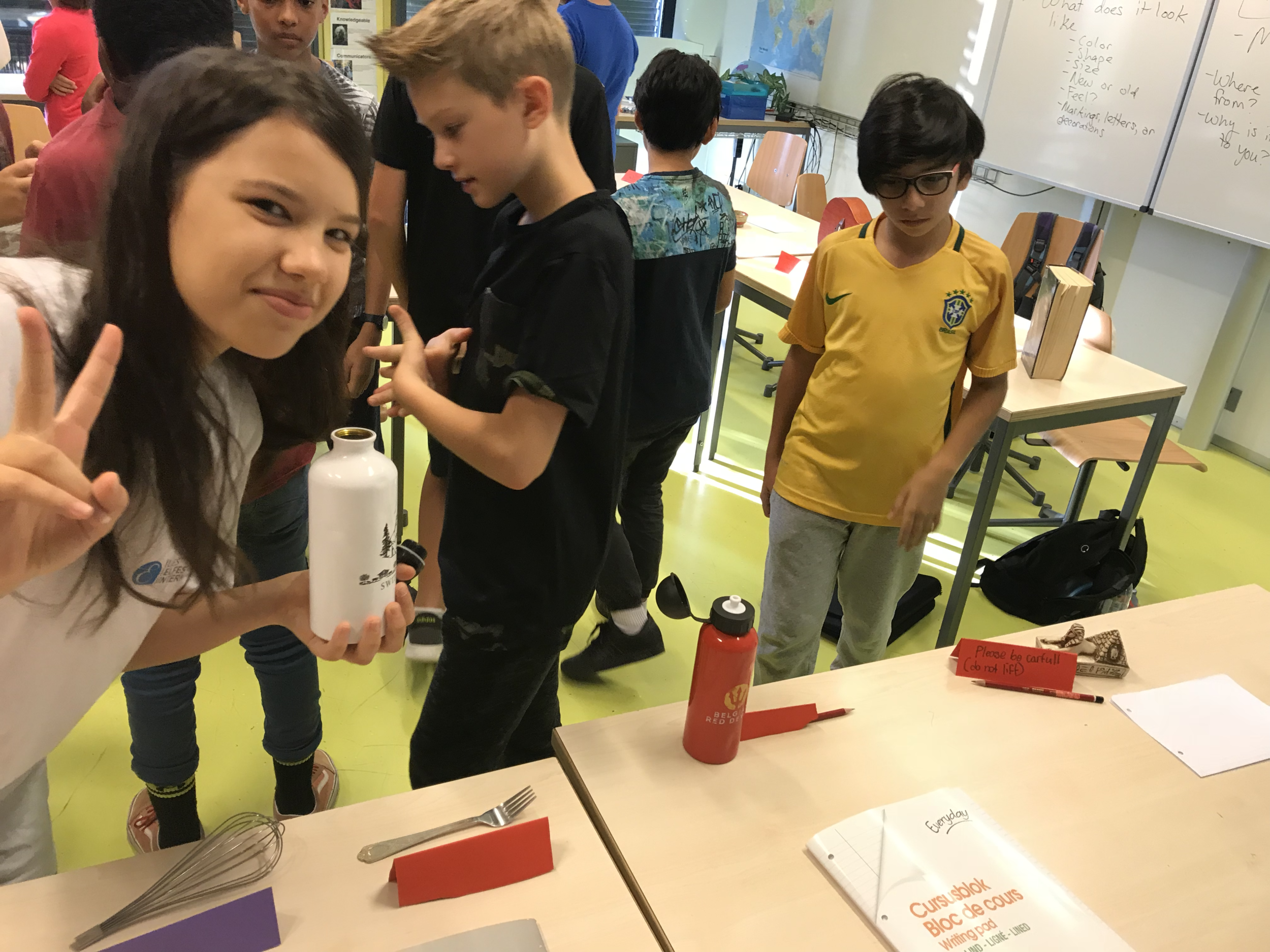The students in Year 7 have been investigating the concept of time and change. To do this they explored a specific character that they felt was of importance from the country that they were either born in or hold a passport for. The students focused on the date and place of birth and death, why the person was influential and justified why that person interested them. Examples can be found below:
Year 7 - Personal Artefacts
7o created a classroom museum of personal artefacts. Everyone brought in an object that represented them or was special to them. Students practised making observations and inferences about the objects so that they could feel what it's like to be a historian.




Year 7 - Who killed the Ice Man?
The students in Year 7 have been exploring how we know about the past. They have looked at the importance of artifacts and how they can be interpreted to learn about the past. To put these ideas into context the students investigated what killed Otzi the Ice Man. The students then wrote up their findings in the form of a police report.
Giorgi
Marie
Shahmeer
Year 7 - Obituary
The Year 7s have just started a historically focused unit of study and the class have been discussing the idea of time and change. To further this the students were asked to focus on an influential person in history from the country that they were born or currently hold a passport for. The students then wrote an obituary for that person focusing on where and when the person was born, what their education was and why they were considered to be influential.
Louisa
Saurav
Yallen
Year 7 - How do we know?
Through the investigation of artefacts from ancient Bronze Age civilisations, students in year 7 are focusing on the question (also the title of the unit of inquiry) "how do we know?"
Responding to factual, conceptual and debatable questions through their research into these artefacts, students are constructing knowledge and understanding of these past civilizations - their belief systems, the structure of Bronze Age societies, the world of entertainment, natural and man-made resources, the skills of the craftsmen, the nature of war and other elements of life in the world's first cities.
The culmination of their investigation will be the production of a museum catalogue entry. Students are grappling with questions about why some clues (artefacts) from history have been preserved (either accidentally or deliberately) why some have been destroyed (accidentally or deliberately) and what this also tells them about how we know about times past.
Other questions that are requiring the students to use their critical thinking skills are why we value these objects and keep them in museums, why it is important to study history, and how we can be certain about history. They are learning that there are many gaps in our knowledge about times past. They are learning that there are also different perspectives depending on points of view, and so we need to ask further questions such as "Whose history?

